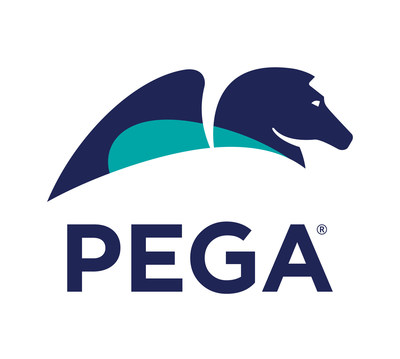Organizations Turning to Intelligent Automation to Guard Against Impact of Future Pandemics, Research Finds
Pegasystems Inc. (NASDAQ: PEGA) released research indicating that intelligent automation will significantly shape the future of work post-pandemic. The global study surveyed over 3,000 senior managers and IT staff, revealing that 84% prioritize pandemic preparedness. Key findings show that 76% plan to increase investment in intelligent automation, while 51% aim to expand AI and cloud solutions. Additionally, 86% anticipate significant technological changes in the workplace in the next five years. The results underscore the necessity for businesses to adopt advanced technologies to thrive in future disruptions.
- 76% of respondents plan to increase investment in intelligent automation.
- 51% intend to expand investment in artificial intelligence and cloud solutions.
- 86% expect significant technological changes in workplace dynamics over the next five years.
- 31% of respondents reported being totally or not very prepared for COVID-19 impacts.
Insights
Analyzing...
CAMBRIDGE, Mass., Sept. 14, 2020 /PRNewswire/ -- Intelligent automation will play a critical role in shaping a new, technologically-enabled, post-pandemic future of work, according to new research by Pegasystems Inc. (NASDAQ: PEGA), the software company empowering digital transformation at the world's leading enterprises. The global study, conducted by research firm Savanta, surveyed over 3,000 global senior managers and frontline IT staff for their thoughts on technology's future role in a significantly altered business landscape.
The research found that preparedness for future pandemics or similar disruptions was still the main focus for many, with an overwhelming majority (
Seventy-six percent of respondents said the pandemic will cause them to increase their intelligent automation investment. Meanwhile,
More broadly, the study found that technology will have a profound effect on the way we work in the future, with
Additional findings highlight how other types of technology could also profoundly change the way we work, our job satisfaction, and also who – or what – we work with:
- Technology is now 'one of us':
84% of respondents say they would be comfortable working alongside intelligent machines with73% agreeing that the term 'workforce' should include both human employees and intelligent machines. Sixty-one percent say they would even be happy being managed by an intelligent machine. Employees are also playing a leading role in driving the use of technology as a force for change within businesses. Sixty-six percent of respondents said employees are asking for better technology to improve the way they work, while76% agreed that increased use of technology is improving employee satisfaction. - Low-code is on the rise:
82% of respondents say IT should provide platforms and systems that allow employees to build and implement their own technology solutions. Meanwhile, more than half of respondents (55% ) say that either 'everyone' or 'the majority' of the workforce within their industry will need low-code skills in the next five years. - Intelligent automation can save time and improve creativity: Eighty per cent say that intelligent automation is helping them to reduce human workloads, with more than one third (
36% ) saying it has already saved them between one and nine working hours per week over the last two years. Almost half (47% ) say they are using the additional time to do more creative activities such as ideation and innovation. Forty-four per cent say they are using the additional time to conduct more analysis and critical thinking tasks.
Quotes & Commentary:
"What this study makes clear is that technology is one of the top trends shaping the future of work," said Jacob Morgan, best-selling author, futurist and founder of FutureofWorkUniversity.com. "In my own research, in which I've interviewed over 140 of the world's top CEOs, it's become apparent to me that every company today is a technology company – whether they know it or not. What this means is that every leader needs to be a technology-driven leader. If your organization doesn't think about and plan for the future of work, then it will have no future. And neither will you for that matter!"
"The events of the last few months have shone a light on the important role technology can play in enabling collaboration and 'business-as-usual' practices when disruptive events take place," said Don Schuerman, CTO, Pegasystems. "Organizations must invest in transformational technologies such as intelligent automation, AI, and cloud services or potentially face even worse consequences when the next disruptive event hits – it's now non-negotiable. Businesses were understandably unprepared for the impact a global pandemic could have on their operations, but when the next global disruption occurs, there'll be no excuse and no place to hide as technology-proofed competitors jostle to pick up their lost customers."
Supporting Resources:
Read Pega's 'The Future of Work: New Perspectives on Disruption & Transformation' report here: https://www.pega.com/future-of-work
Download an infographic here: https://www.pega.com/insights/resources/how-future-work-changed-2020-global
Notes to Editors
Pega surveyed more than 3000 senior managers and frontline IT staff working globally in Financial Services, Healthcare, Insurance, Manufacturing, Communications, and the Public Sector. The results include responses from the United States & Canada, United Kingdom, France, Germany, the Netherlands, Singapore, Hong Kong, China, Japan and Australia.
Jacob Morgan is a Pega-sponsored influencer.
About Pega
Pega is the leader in cloud software for customer engagement and operational excellence. The world's most recognized and successful brands rely on Pega's AI-powered software to optimize every customer interaction on any channel while ensuring their brand promises are kept. Pega's low-code application development platform allows enterprises to quickly build and evolve apps to meet their customer and employee needs and drive digital transformation on a global scale. For more than 35 years, Pega has enabled higher customer satisfaction, lower costs, and increased customer lifetime value. For more information on Pegasystems (NASDAQ: PEGA) visit www.pega.com.
Press Contact:
Jon Brigden
Pegasystems
jon.brigden@pega.com
Twitter: @pega
All trademarks are the property of their respective owners.
![]() View original content to download multimedia:http://www.prnewswire.com/news-releases/organizations-turning-to-intelligent-automation-to-guard-against-impact-of-future-pandemics-research-finds-301128452.html
View original content to download multimedia:http://www.prnewswire.com/news-releases/organizations-turning-to-intelligent-automation-to-guard-against-impact-of-future-pandemics-research-finds-301128452.html
SOURCE Pegasystems Inc.








